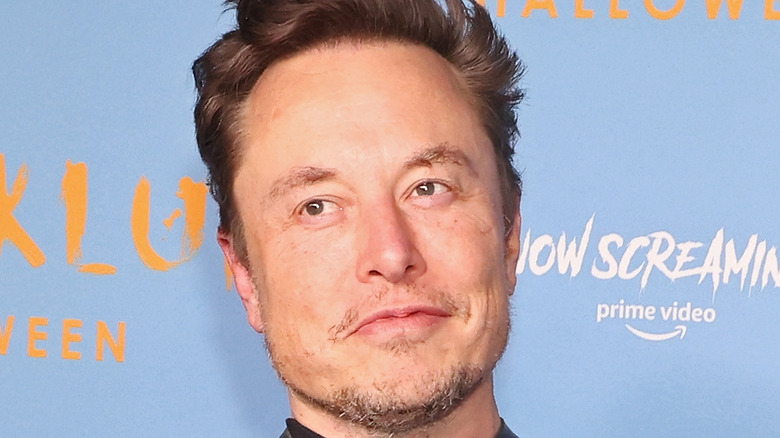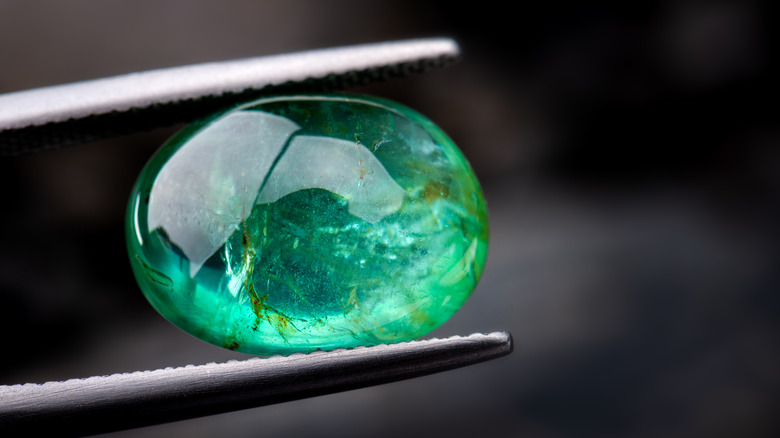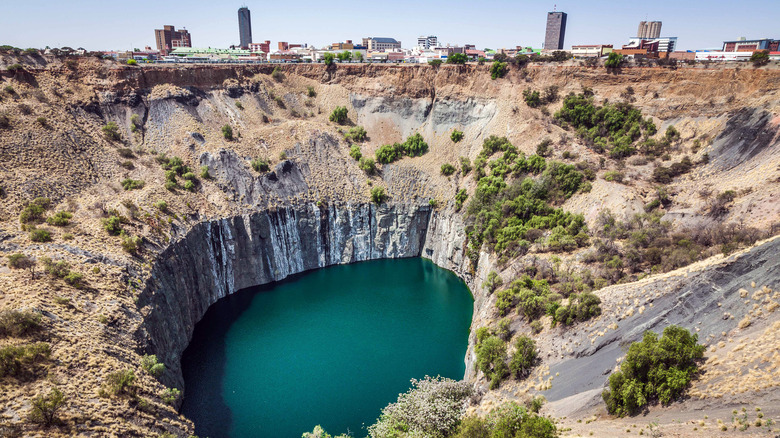How A Rumor About Elon Musk's Family Emerald Mine Fortune Took A Life Of Its Own
Elon Musk never ceases to inspire endless speculation, rumor, discussion, debate, intrigue, upheaval — you name it. Simply by existing, the CEO of Tesla, SpaceX, Twitter, and would-be "Imperator of Mars" (per Futurism) inserts himself into public debate. Whether it's Musk's seemingly mercurial decision-making, debatably unhinged on-and-offline persona, or potentially dangerous philosophical futurism (e.g., let's make a fused man-machine consciousness, per Barron's), there's never a dearth of Muskian topics circulating through the conversation mill. But one thing no one can ever accuse Musk of? Being lazy. Folks can also never accuse him of not making his own path, or not building his empire of companies from zilch.
Case in point: no matter what kind of wealth Musk came from, he states on Twitter that he was $100,000 in student debt after working his way through college and graduating from the University of Pennsylvania. He "couldn't even afford a 2nd PC at Zip2" (Zip2 was his first start-up company). As CNBC continues, he sold Zip2 to Compaq for $300 million and used the money to founded X.com, which later became PayPal. He eventually sold Paypal to found SpaceX and Tesla, a risky venture that left him "more than broke" and tremendously "in debt" per the Independent. Some have speculated that Musk's father Errol helped him a lot in his early days, a rumor complicated by Musk and his father's acrimonious relationship. Some have even claimed that Errol owned an "apartheid emerald mine," as Snopes quotes, that fueled his son's early-career ventures.
The loose emeralds of youth
It makes sense that certain members of the public want to conjure some explanation for Musk's success beyond, "He worked hella' hard." That being said, there's a glimmer of truth-adjacent information embedded within the bald claim of, "Musk's father Errol supplied his son with funds from an apartheid-era emerald mine." But, the facts stop with an anecdote about an episode from Musk's youth when he traipsed around New York City.
As The South African says, Musk left home when he was 17 and enrolled in Queen's University in Kingston, Ontario, Canada. From there he shifted to Stanford and the University of Pennsylvania in the U.S. Before this, however — when Musk was about 16 or so — he and his brother Kimbal walked into Tiffany's on Fifth Avenue in New York City with some loose emeralds in their pockets, as Business Insider South Africa recounts. The Musk brothers sold the emeralds to the store, right then — one for $800 and the other for $1,200. Tiffany's later set the $800 emerald into a ring and sold it for $24,000.
And why did two teenagers have emeralds to begin with? Musk's father Errol said, "We were very wealthy. We had so much money at times we couldn't even close our safe." He didn't own an emerald mine, but he did have "a stake" in an emerald mine that collapsed in 1989, per Snopes. It seems that none of this money, though — or the mine — passed to Musk.
No inheritance from father to son
Once the Musk emerald story started circulating, and information about Musk's father Errol's past business dealings got out, a cavalcade of internet poo-pooers flocked to Twitter to lambast Musk with the power of incomplete facts. "Elon Musk is a rich kid from a family that profited off emerald mining in apartheid South Africa who bought out the actual founders of Tesla," Snopes quotes one user. "He's a billionaire because his parents owned an emerald mine in apartheid South Africa," says another. For his part, Musk stated on Twitter, "I don't have an 'emerald mine,' nor was I given free money from anyone, inheritance or otherwise." Musk also stated on Twitter that he arrived in Canada in 1989 with 2,500 Canadian dollars — that's it.
Musk, in fact, left his home in South Africa at 17 in large part because he detests his father and didn't want the man's money or assistance. In a 2017 Rolling Stone interview with Musk, he called his father "a terrible human being" with a "carefully thought-out plan of evil." Musk elaborated, "Almost every crime you can possibly think of, he has done." And in case anyone believes that Musk would accept funds from South African, mine-based human rights violations, Musk's departure from South Africa let him avoid the country's mandatory military service. "Suppressing Black people just didn't seem like a really good way to spend time," Foreign Policy quotes him.


